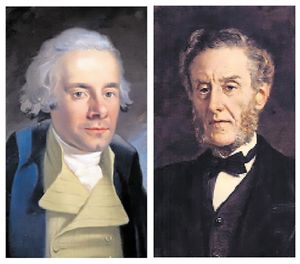The idea of two kingdoms (the common kingdom and the redemptive kingdom) is broadly accepted as the teaching of the Reformers. Two kingdoms, both under God’s sovereignty, but ruled by God in different ways. There are, of course, particular versions of this theology (quietist on the one hand and triumphalist on the other, as set out by David VanDrunen in the May edition of ET), but the real underlying question is not the principle itself, but the relationship between the two kingdoms.
‘Let us then as Protestants, stand by that which is alone was the pillar and ground of truth – the Bible, the whole Bible and nothing but the Bible.’ Amen. - Lord Shaftesbury
The matter is an important one for several reasons. As Christians, we long for others, in the providence of God, to come under the saving grace of the gospel. The question then is, once we have come to salvation, does that spiritual, redemptive kingdom have anything to say to our life in the common kingdom, our work, our citizenship, our civic duties? Or are they completely separate?










